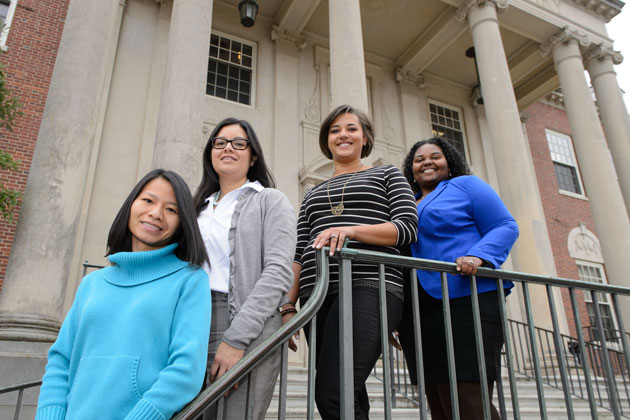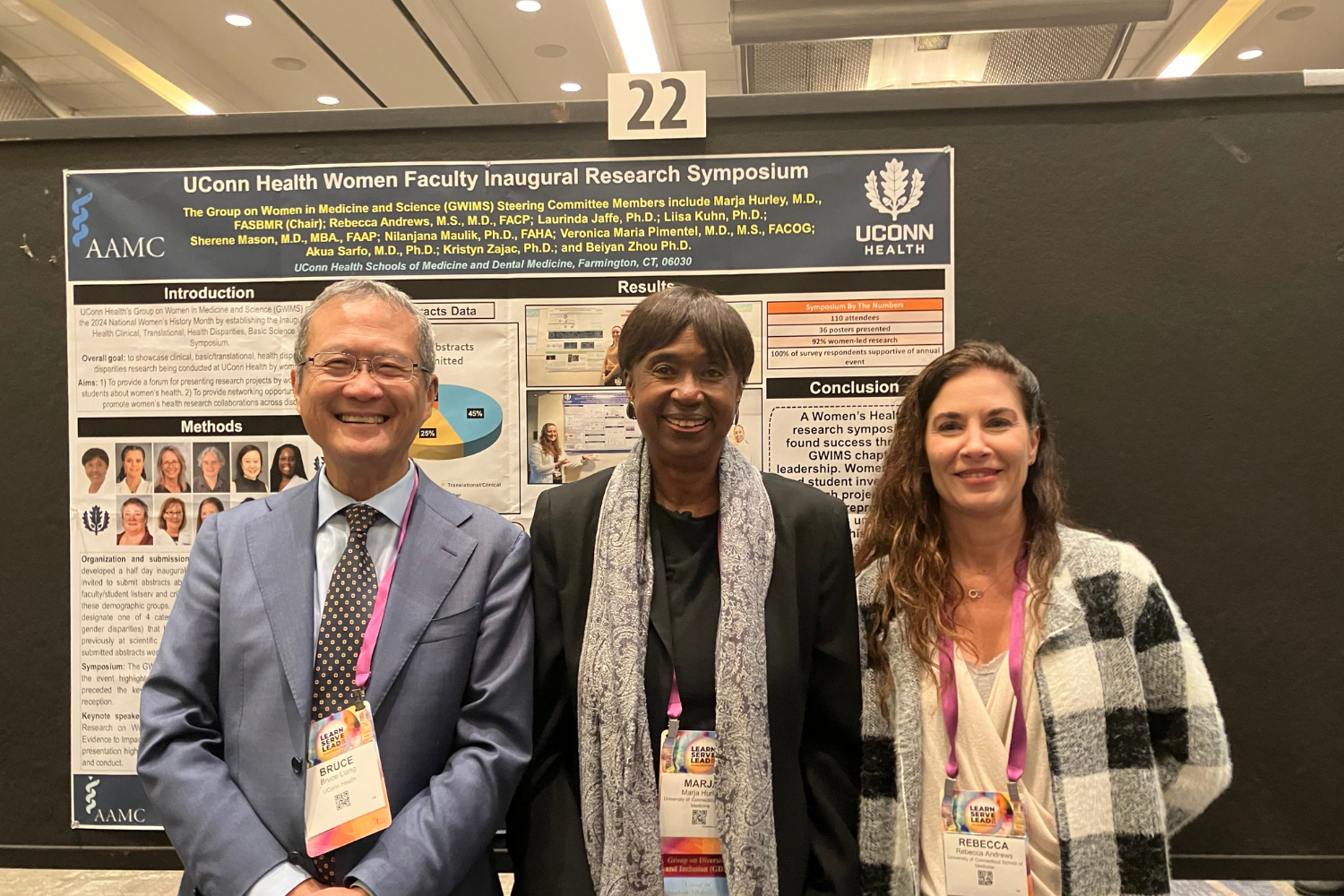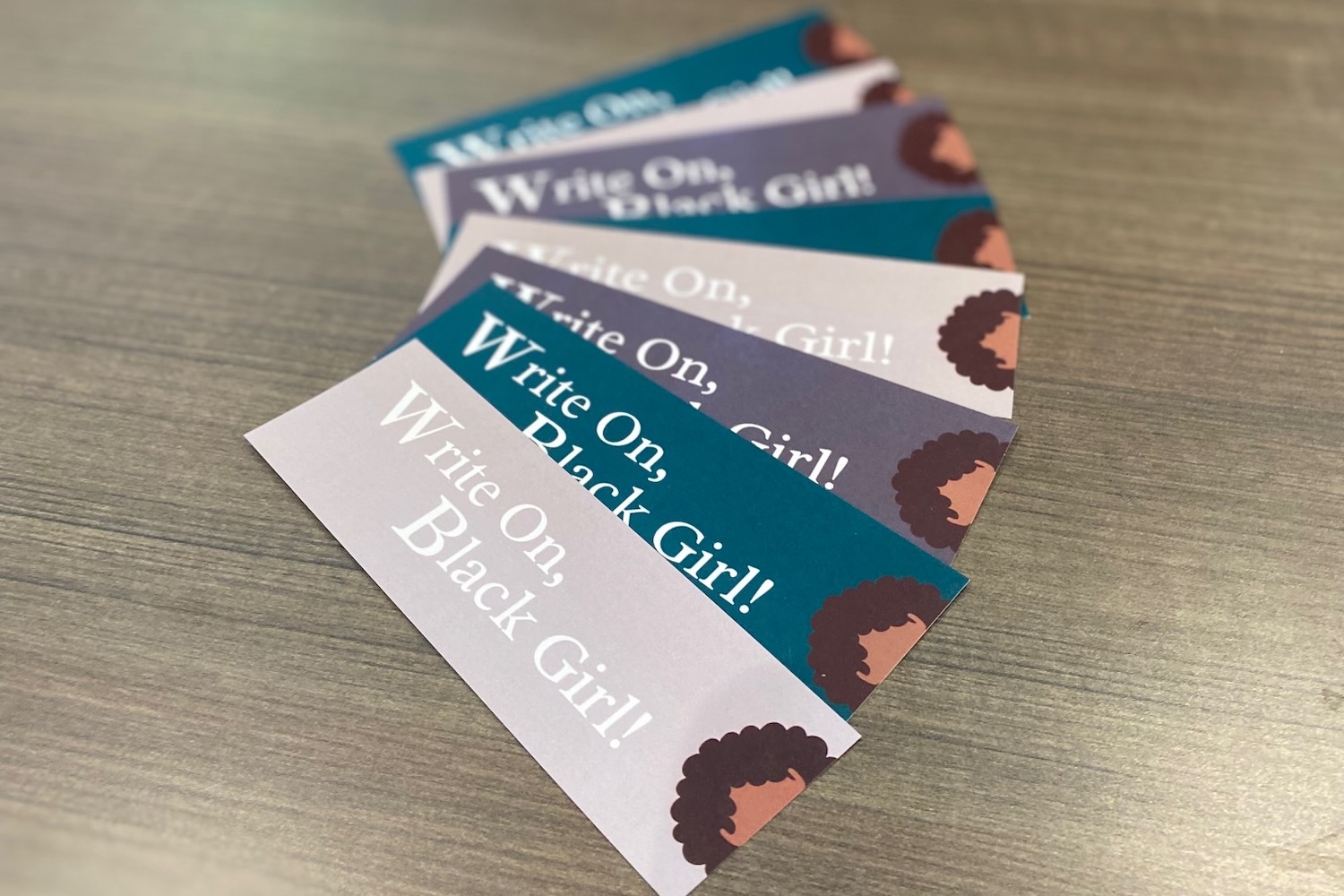
A diverse student body – in terms of gender, race, language, and nationality – makes a university campus a vibrant, intellectually stimulating place. But the presence of a diverse team of faculty and staff is just as important, says vice provost for diversity Jeffrey Ogbar.
The Vice Provost for Diversity Pre-doctoral and Post-MFA In-Residence Fellowships, offered at UConn for the first time this semester through the Office of the Vice Provost for Diversity, are designed to make a significant contribution toward this goal. Four young scholars from other universities have been welcomed to campus for the 2013-2014 academic year, as they complete work on their dissertations.
The four and their home schools are Amanda Almond, University of Rhode Island; LaToya Eaves, Florida International University; Melissa Huerta, University of Illinois at Chicago; and Quan Tran, Yale University.
Ogbar says the program is modeled on similar programs with proven track records and evidence of success at leading universities including Dartmouth, the University of Pennsylvania, the University of Virginia, and Notre Dame.
He says having Diversity Fellows on campus is beneficial to all concerned. While writing their dissertations and planning courses they will teach in the spring semester, the Ph.D. candidates will also form lasting professional relationships within the institutes and academic departments where they are housed. By the same token, they will enrich UConn’s graduate and undergraduate communities by sharing their individual experiences and the results of their various research initiatives.
Varied interests, backgrounds
Almond’s approach to research is influenced by her interest in the philosophy of science and the use of mixed methods in research design. Her dissertation focuses on the relationship between cross-racial patient-provider interactions and decisions to engage in health behavior among blacks in the U.S. She has also validated a measure of racial micro aggression in medical practice. Almond has presented her work at the annual Association for Women in Psychology conference. Her sponsor is the Institute for African American Studies.
Eaves earned a master’s degree in higher education administration and spent five years working in that field before enrolling in a Ph.D. program in Florida International University’s global and sociocultural studies department. Her professional experience gives her an insider’s perspective on the importance of diversity in administrative and staff positions, as well as within a student body. Eaves’ dissertation is titled “Spatial Articulations of Race, Desire, and Belonging in Western North Carolina,” and her research areas include black geographics, sexuality and space, and southern studies. Her host is the Women’s, Gender, & Sexuality Studies program in the College of Liberal Arts and Sciences.
Huerta is a Ph.D. candidate in the Department of Hispanic and Italian Literary and Cultural Studies at the University of Illinois, Chicago. Her dissertation examines the role of Latina feminism and Latinidad in the development, evolution, and practice of Chicago’s only all-Latina theatre ensemble, Teatro Luna. A native of Milwaukee, Wis., she has taught Spanish language and literature courses and developed courses for Latin American Studies for the past seven years. Her host organization at UConn is the Institute of Latina/o, Caribbean, and Latin American Studies.
Tran, who was born and raised in Vietnam, came to the U.S. as a teenager. Her dissertation is titled “Anchoring Boat People’s History and Memory: Dimensions of Refugee Identity, Community, and Knowledge Production in the Contemporary Vietnamese Diaspora.” A published poet and translator, Tran’s interdisciplinary study examines the Vietnamese boat people’s exodus of the late 1970s and 1980s, and explores how that exodus is remembered currently in the Vietnamese diaspora. The Asian American Studies Institute is her sponsor.
Mutual benefits
Ogbar says that in order to attract top candidates to the program, UConn is offering both financial incentives and academic support from the institutes and [academic] departments to which they are assigned. He was pleased with the quality of the applicants. “The fact that each area invited its top candidate,” he says, “and each of those candidates accepted, means that we are off to a good start.”
Ogbar says it is a coincidence that all of the Fellows selected this year are women, and that each comes from one of the liberal arts disciplines. “We’re very grateful for the support we have received from CLAS in the first year of this program,” he says. “However, since the faculty in our host institutes currently hold joint appointments in the Neag School of Education and the School of Fine Arts as well as CLAS, we anticipate that in future years our scholars will come from all three of those areas.”
The Fellows welcome the opportunities the program provides at a critical stage in their academic careers. ”I am able to be more productive in my research and writing,” says Eaves, “and don’t have to deal with the added stress of other employment during my dissertation year.” She notes that she has been able to forge relationships with the other three Fellows, with faculty members in the Women’s, Gender, & Sexuality Studies program, and in the geography department, as well as the University: “I’m grateful for the opportunity to network in and around UConn over the course of this year.”
Adds Tran, “This program has created opportunities for the four of us to meet and share our experiences, but it has also exposed us to faculty and students throughout the University who have been welcoming and generous in sharing their friendships and their expertise.”
Although the Fellows represent different areas of scholarship, they share a common goal of becoming members of the professoriate upon completion of their doctoral studies. Each of them will teach a course at UConn that is designed specifically around their research interests during the spring semester, before returning to their home institutions to receive their doctoral degrees.



